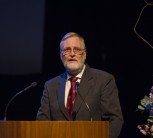The Centre For Maternal, Fetal, Newborn and Child Health Care at the University of Pretoria has announced that it will join the World Health Organization (WHO) Global Maternal and Neonatal Sepsis Initiative, which aims to accelerate the reduction of preventable maternal and neonatal deaths related to sepsis by participating in the Global Maternal Sepsis Study (GLOSS).
Every pregnant (or recently pregnant) woman and newborn baby is at risk of an infection that could trigger sepsis. Maternal sepsis continues to be a leading cause of death for women and newborns. Infections are the primary cause of about 35,000 maternal deaths. Sepsis can contribute to up to 100,000 maternal deaths. Sepsis kills more than 1 million newborns. Although sepsis is life-threatening, it can be stopped if identified early and treated promptly. Reducing maternal mortality and ending preventable deaths of newborns are essential to achieving Sustainable Development Goal 3.
The WHO has launched the Global Maternal and Neonatal Sepsis Initiative to tackle this critical condition and foster alignment, collaboration, research, innovation and advocacy efforts globally. In the first instance, WHO has developed a standardised definition of maternal sepsis to bring it in line with the current understanding of sepsis in the adult population: 'Maternal sepsis is a life-threatening condition defined as organ dysfunction resulting from infection during pregnancy, child-birth, or a post-abortion or post-partum period.'
GLOSS is a global study that will test and validate this new definition in 54 countries, identifying women with infection over the course of 7 days between 28 November and 4 December 2017. Data collected from this study will be used to assess the burden and current management of maternal and early neonatal sepsis.
'Sepsis is an ever-present challenge in every hospital, but we have the opportunity to save the lives of women and babies in our care by working together to stop it. We are pleased to be partnering with WHO to tackle this life-threatening condition on a global scale. By participating in GLOSS, we will ensure that vital data from South Africa are included in this important study,' said Prof Bob Pattinson, Director of the Centre.
'The World Health Organization recognises the urgent need to pay more attention to this life-threatening but not-so-well-known condition,' said Dr Tedros Adhanom Ghebreyesus, Director General of the WHO. 'We hope that the results of this study will improve our understanding of the prevalence of maternal sepsis, and how it is prevented and treated around the world.'
Visit Research Matters to read more about the amazing work being done by the team at the Centre For Maternal, Fetal, Newborn and Child Health Care at the University of Pretoria.
About the UP Centre for Maternal, Fetal, Newborn and Child Health Care
The South African Medical Research Council's (SA MRC) Maternal and Infant Health Care Strategies Unit was awarded to Professor Pattinson and has been housed in the Department of Obstetrics and Gynaecology of the Faculty of Health Sciences, University of Pretoria (UP) since 1997. The Unit specialises in identifying core problems, developing effective solutions and determining successful ways of implementing these interventions to reduce deaths of pregnant women and their infants at primary and secondary levels of care. The research mandate of the Centre is to develop health strategies at primary and secondary care levels for mothers and infants by seeking saleable and sustainable solutions.
About the Global Maternal and Neonatal Sepsis Initiative
The Global Maternal and Neonatal Sepsis Initiative was launched in early 2017 by the World Health Organization (WHO) and Jhpiego (an affiliate of The Johns Hopkins University). Its goal is to accelerate the reduction of preventable maternal and neonatal deaths related to sepsis, by fostering alignment, collaboration, research, innovation and advocacy to eradicate sepsis and save women's lives. http://srhr.org/sepsis/
About the Global Maternal Sepsis Study
The Global Maternal Sepsis Study (GLOSS) aims to provide the evidence base that will help to quantify the true burden and assess the current management of maternal and neonatal sepsis. The study will look at how women with infection during pregnancy, childbirth or postpartum, or post-abortion are identified and treated in participating hospitals. Over the course of one week (28 November to 4 December 2017) eligible women will be identified, prompting a coordinated data collection effort in 54 countries and approximately 500 healthcare facilities around the world. The new maternal sepsis definition and potential identification criteria will be tested and validated in this large global study.
Read more on maternal and child health here.
Prof Robert Pattinson
November 28, 2017

 Story
Story
University of Pretoria (UP) researchers have found that the antioxidant content of certain types of tea can be likened to that found in recommended portions of fruit and vegetables.
 Infographic
Infographic
Half a cup of black tea, oolong tea or green tea contained the same amount of antioxidants with radical scavenging capabilities (RSC) as that of a 200mg vitamin C tablet.
 Story
Story
Researchers at the University of Pretoria (UP) may have identified the gene that is responsible for diet-related obesity. By exploring the role of the novel gene Slc7a8, they have made a potential breakthrough in current knowledge about the cellular mechanisms that drive fat accumulation. This understanding is crucial in developing effective treatments.
Copyright © University of Pretoria 2025. All rights reserved.
Get Social With Us
Download the UP Mobile App